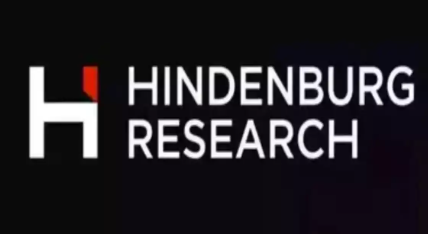Hindenburg Research
Hindenburg Research has been a lightning rod in the financial world, renowned for its investigative reports exposing alleged corporate misconduct. With a history of scrutinizing companies across industries, the firm has earned both accolades and criticism for its aggressive approach. However, its eventual decision to shut down operations marked the end of a controversial chapter in financial analysis.

The Origins of Hindenburg Research
Hindenburg Research was founded in 2017 by Nathan Anderson, a former investment management and risk analyst. Based in New York City, the firm took its name from the infamous Hindenburg airship disaster of 1937, a metaphor for the “man-made disasters” it sought to uncover in the financial world. Anderson’s vision was to leverage forensic accounting and investigative journalism to expose fraud, corporate malfeasance, and other financial irregularities.
Specializing in short selling, Hindenburg profited by taking positions against companies it believed were engaging in unethical or fraudulent practices. By releasing detailed reports outlining its findings, the firm aimed to bring transparency to the market while simultaneously benefiting from the decline in the targeted company’s stock price.
Landmark Reports and Impact
Over the years, Hindenburg Research became known for high-profile investigations that rocked global markets. Some of its most notable cases include:
Nikola Corporation (2020)
Hindenburg’s report on electric vehicle manufacturer Nikola Corporation accused the company of fraud, including staging product demonstrations and exaggerating technological capabilities. The allegations led to a sharp decline in Nikola’s stock price, regulatory investigations, and the resignation of founder Trevor Milton, who later faced criminal charges.
Adani Group (2023)
In one of its most explosive reports, Hindenburg accused the Indian conglomerate Adani Group of stock manipulation and accounting fraud. The report alleged that Adani had used offshore shell companies to inflate its valuation artificially. The fallout was massive, wiping billions off Adani’s market capitalization and sparking debates on corporate governance in India. Although Adani strongly denied the allegations, the report’s impact reverberated globally.
Clover Health (2021)
Hindenburg’s report on Medicare Advantage insurer Clover Health alleged that the company failed to disclose an ongoing Department of Justice investigation. It also criticized the company’s marketing practices and financial disclosures. The report caused Clover’s stock to plummet, though the company refuted the claims.
Block Inc. (2023)
Hindenburg targeted Block Inc. (formerly Square), accusing the company of misleading investors about key business metrics and enabling fraud through its Cash App platform. The report led to a significant drop in Block’s stock price and intensified scrutiny of its operations.
Methodology
Hindenburg Research’s methodology combined traditional investigative techniques with modern data analysis. The firm often relied on whistleblowers, internal documents, public records, and field investigations to substantiate its claims. Its reports were meticulously detailed, providing extensive evidence to support allegations of wrongdoing.
Importantly, Hindenburg maintained transparency about its financial stakes, openly acknowledging its short positions in the companies it investigated. This approach underscored the firm’s belief in aligning its financial interests with its research outcomes.
Criticism and Controversies
Despite its successes, Hindenburg faced significant criticism throughout its operations. Detractors argued that its reliance on short selling created a conflict of interest, as the firm directly profited from the decline in stock prices of the companies it targeted. This led some to question the objectivity and motives behind its reports.
Many companies accused Hindenburg of spreading misinformation and using sensationalism to manipulate markets. For example, both Nikola and the Adani Group dismissed the firm’s allegations as baseless and motivated by profit. While regulatory investigations often validated Hindenburg’s findings, the firm’s methods remained a subject of heated debate.
The Decision to Shut Down
On 10th-Jan-2024, Hindenburg Research shocked the financial world by announcing its closure. The decision came after years of intense scrutiny, legal battles, and growing regulatory pressures. While the firm had built a reputation for exposing corporate misconduct, its aggressive tactics had also attracted significant backlash from powerful entities and governments.
In a statement, Nathan Anderson cited “exhaustion from constant litigation” and “an increasingly hostile regulatory environment” as key reasons for shutting down operations. He emphasized that the firm’s mission had been to bring transparency to markets but acknowledged that its work had made it a target for powerful adversaries.
The decision to wind down was met with mixed reactions. Supporters praised Hindenburg for its fearless investigations and lamented the loss of a critical voice in the financial world. Critics, however, argued that the firm’s closure was inevitable, given its contentious methods and the ethical questions surrounding its reliance on short selling.
Legacy and Lessons
Hindenburg Research’s closure marked the end of an era in financial activism. Despite its controversies, the firm’s work brought systemic issues in corporate governance to light, leading to regulatory reforms, criminal investigations, and heightened scrutiny of business practices.
The firm’s legacy is a testament to the power of independent investigative research in holding corporations accountable. However, it also serves as a cautionary tale about the ethical complexities of blending financial interests with activism. As markets evolve, the need for transparency and accountability remains, even as the tools and actors in this space continue to change.
Disclaimer
This blog is intended to provide an overview of Hindenburg Research, its operations, controversies, and eventual closure. The content is based on publicly available information and is for informational purposes only. It does not constitute financial advice, endorsement, or criticism of any individual, organization, or practice. Readers are encouraged to consult professional advisors and review multiple sources before forming conclusions about the topics discussed. Statements made by Hindenburg Research and the companies it targeted should also be considered for a balanced perspective.


Recent Comments